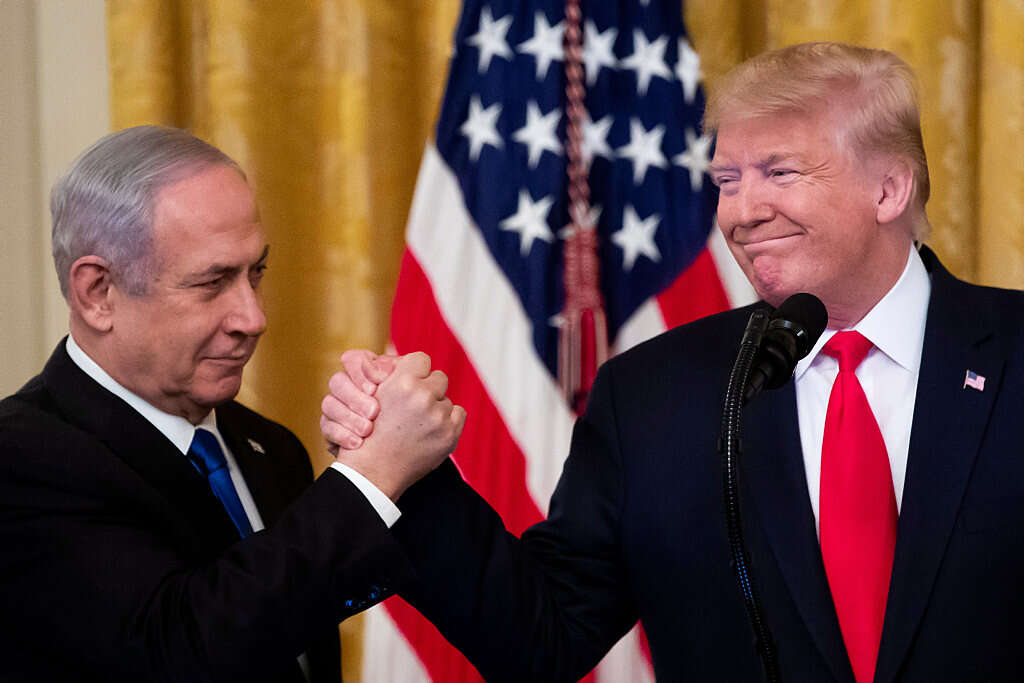The 2024 presidential race enters its final stretch, following months of extensive coverage of Republican candidate former President Donald Trump and Democratic candidate Vice President Kamala Harris. While each candidate has their own strategy to win the election, they share one consensus: the significance of their positions on the ongoing war between Israel and Hamas in Gaza, following Hamas' deadly attack on October 7, 2023. This issue takes on additional significance when it comes to dual citizens – Israeli-Americans – who make up a distinct voting bloc.
Following a year of volatile protests across American campuses, rising antisemitism, hostages still being held in Gaza, and an ongoing war with no end in sight, Americans on both sides of the Israel debate have criticized the current administration's handling of the conflict. For Israeli-American voters, this has raised a crucial question: which candidate do they trust with their vote?
"I didn't realize how seriously Israeli-Americans take this election until I posted an Instagram story asking for help signing up," Daria Bar, a 30-year-old Israeli-American resident of Haifa said. "I was bombarded with messages advising me who I should vote for and why, even though my mind was set on Trump. I felt many judged me for it – someone even said it was 'out of character' for me. Trump is definitely a controversial person, but if the question is what's best for Israel's interests, there's absolutely no doubt. After Harris acknowledged Israel was 'committing genocide,' how could I vote for her?"
For dual citizens, the significance of this election extends beyond typical partisan politics. In the aftermath of Oct. 7, many find themselves weighing each candidate's potential impact on the two nations, having to consider what might serve America's interests versus Israel's needs during wartime.

"In my 35 years in Israel, I have always voted in the US Presidential elections. I did not even consider not voting until maybe a month ago. I've debated intensely with myself and a few close friends and I have decided not to vote," a 67-year-old Israeli-American resident of Binyamina who chose to remain anonymous said.
"I did not even consider not voting until maybe a month ago," a 67-year-old Israeli-American resident of Binyamina who chose to remain anonymous said, reflecting on his 35 years of voting in US presidential elections. "I've debated intensely with myself and a few close friends, and I have decided not to vote. I could never vote for Trump because of the type of president he was and no doubt would be in the future. While I can agree with some of his policies, especially as regards Israel, I am absolutely unable to return this type of person to such a powerful role.
"Early on, I thought I could support Harris, even though as VP she never really impressed me as an assertive person with clear objectives," he added. "But in the last month, I sense that she is absolutely not clear, perhaps not even with herself, and certainly not strong enough to lead the 'free world'. Her stance on Israel is the worst it could be in my view – it's ambiguous and seems intentionally uninformed. I could not vote for her either. I've always valued my vote from Israel, but for the first time, I feel like I don't want to participate in this at all. It is a very difficult feeling for me."
However, for 29-year-old Raz Elfar, an Israeli-American resident of Tel Aviv, Trump is undoubtedly the obvious choice, though he too won't be voting in this election. "Being registered in California, I knew from the start I wouldn't vote – there's simply no motivation to do so. But if I could, I'd vote for Trump, which I believe should be obvious, even for non-Israelis. Look at Trump's presidency – the world was in a far better place. Now we're witnessing chaos on all fronts: Russia-Ukraine, China-Taiwan, North Korea, Iran-Israel, October 7th – all unfolding under Biden's watch."

"The White House needs a stronger presence," he added. "Trump's actions consistently demonstrated his support for Israel. While Biden has been helpful in many ways, I sense Harris holds a less favorable stance toward our interests. Choosing Trump serves both American and Israeli interests – with World War III looming, it's time for the sheriff to return to town."
According to a new survey by the Israel Democracy Institute, this pro-Trump sentiment is widespread among Israelis. The poll shows they strongly prefer former President Trump over Vice President Harris when it comes to Israel's interests. Approximately two-thirds of respondents indicated Trump would be better for Israel, while only 13% favored Harris.
The political breakdown among Jewish respondents in Israel revealed that 90% of right-wing voters and 52% of centrists believe Trump would be more beneficial for Israel, while the left slightly favors Harris over Trump (42% versus 29%). Gender analysis in Israel showed a moderate gap, with 69% of men preferring Trump compared to 60% of women. The most striking difference appeared in age demographics: an overwhelming 90% of young Israelis believe Trump would better serve Israel's interests, compared to just 55% of older respondents who shared this view.
The results may be unpredictable, but one thing is certain: never has the American public, including Israeli-American voters, been more divided over their presidential candidates. This unprecedented divide likely stems from the sense of urgency and gravity surrounding the upcoming election's outcome. As both American and Israeli-American voters prepare to cast their ballots or choose to sit this election out, Israelis too are watching intently to see which leader will shape the war's trajectory moving forward.




